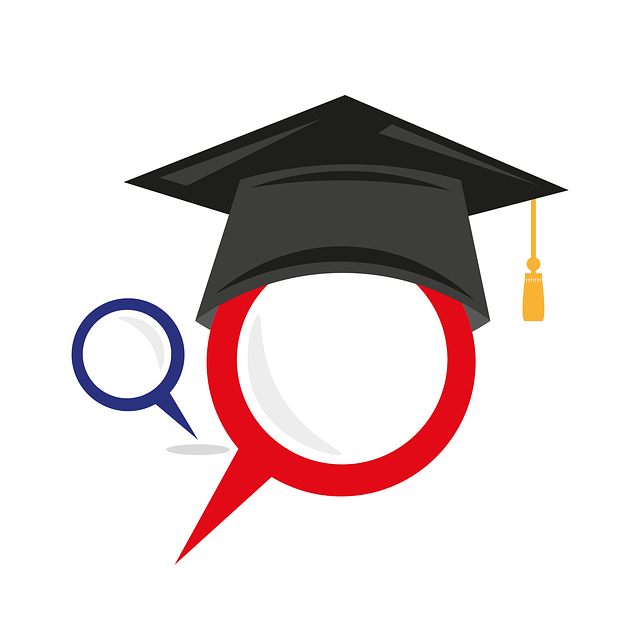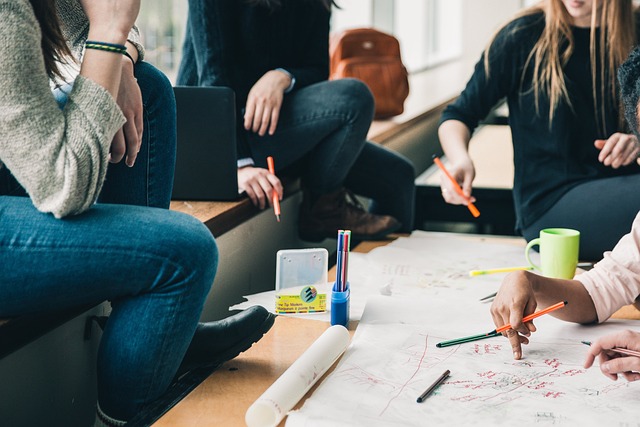Karachi's educational institutions are undergoing a significant transformation in student evaluation methods, moving away from traditional pen-and-paper assessments towards dynamic, holistic approaches that prepare students for the 21st century. Alternative techniques like project-based learning, peer assessment, and digital portfolios enhance critical thinking, creativity, and collaboration skills vital for today's job market. Digital tools revolutionize assessment, providing more nuanced insights into student performance and fostering an inclusive learning environment. Peer review and collaborative learning are key, promoting group work and soft skills crucial for success in Karachi's dynamic communities. Student feedback is increasingly integrated into curriculum design, ensuring educational programs meet individual needs and align with industry demands. These modern evaluation methods cater to varied learner needs, encourage creativity, critical thinking, and real-world problem-solving, ultimately enhancing learning outcomes in the bustling city of Karachi.
In the dynamic landscape of education, Karachi’s academic institutions are at the forefront of modern approaches to student evaluation. This article explores innovative methods that transcend traditional assessment practices, leveraging digital tools, peer review, and collaborative learning to enhance curriculum design. We delve into the evolving perspective from Karachi, focusing on alternative assessment methods tailored to diverse learners. By examining best practices, we aim to ensure fairness and accuracy in modern student evaluations.
- The Evolution of Student Evaluation: A Karachi Perspective
- Digital Tools Transforming Assessment Practices
- Peer Review and Collaborative Learning
- Incorporating Student Feedback in Curriculum Design
- Alternative Assessment Methods for Diverse Learners
- Ensuring Fairness and Accuracy: Best Practices in Modern Evaluations
The Evolution of Student Evaluation: A Karachi Perspective

In Karachi, Pakistan’s vibrant metropolis, the evolution of student evaluation methods mirrors global trends, reflecting a shift from traditional pen-and-paper assessments to more dynamic and holistic approaches. This transformation is driven by the need to prepare students for the complexities of the 21st century. Historically reliant on written exams, Karachi’s educational institutions are now embracing alternative evaluation techniques, such as project-based learning, peer assessment, and digital portfolios. These innovative methods not only assess knowledge retention but also foster critical thinking, creativity, and collaboration—skills essential in today’s competitive job market.
Karachi’s educational landscape is witnessing a significant push towards student-centered learning, where evaluation becomes an ongoing process integrated into the teaching methodology. This shift aligns with global best practices, recognizing that traditional assessment methods often fail to capture the depth of learning and individual strengths. By adopting modern approaches, Karachi’s educational institutions are equipping students with the skills and confidence needed to thrive in a rapidly changing world, ensuring they are not just recipients of knowledge but active contributors to their own education and future success.
Digital Tools Transforming Assessment Practices

In the digital age, Karachi, like many metropolises around the world, is witnessing a profound transformation in student evaluation methods due to innovative assessment tools. Traditional pen-and-paper tests are increasingly being supplemented by online platforms and interactive software that cater to diverse learning styles. These digital tools not only enhance accessibility but also offer more nuanced insights into student performance. Teachers can now create dynamic quizzes with multimedia elements, ensuring engaging assessments that align with the modern curriculum.
The shift towards digital assessment has been particularly impactful in Karachi’s educational landscape, where schools and universities are leveraging technology to move away from conventional evaluation practices. This revolution is not just about convenience; it’s about fostering a more inclusive learning environment. With digital tools, educators can promptly analyze student responses, identify areas of difficulty, and adapt their teaching strategies accordingly. This real-time feedback loop is transforming assessment from a summative exercise into a continuous, supportive process that benefits both teachers and students alike.
Peer Review and Collaborative Learning

In modern educational settings, such as those in Karachi, peer review and collaborative learning have emerged as powerful tools for enhancing student evaluation methods. Peer review involves students assessing each other’s work, fostering a culture of critical thinking and constructive feedback. This process not only improves the quality of assignments but also encourages students to develop deeper understandings of the subject matter. In Karachi’s diverse academic landscape, peer review has been particularly effective in promoting inclusive learning environments where students from various cultural backgrounds can learn from one another.
Collaborative learning, on the other hand, emphasizes group work and shared responsibility for learning outcomes. By working together, students can build upon each other’s strengths, fill knowledge gaps, and develop essential soft skills like communication and teamwork. This approach aligns well with Karachi’s dynamic and interconnected communities, where collaboration is often key to success in both academic and professional settings. Through these modern evaluation methods, educational institutions in Karachi are not only preparing students for exams but also equipping them with valuable life skills that will serve them well in the future.
Incorporating Student Feedback in Curriculum Design

In modern educational settings, particularly in vibrant cities like Karachi, student evaluation methods are evolving to be more inclusive and student-centric. One significant approach is incorporating student feedback into curriculum design, shifting from a top-down model to a collaborative process. By actively seeking input from students, educators can tailor the learning experience to meet their needs and expectations, fostering a more engaging and relevant curriculum. This method allows for continuous improvement, ensuring that the educational program aligns with industry demands and modern teaching methodologies.
Students, being direct participants in their education, possess valuable insights into what works best for them. Their feedback can highlight areas of the curriculum that are particularly effective or challenge existing practices, leading to innovative solutions. In Karachi’s diverse academic landscape, where institutions strive to stay relevant and competitive, embracing student feedback is not just a pedagogical choice but a strategic necessity. It empowers students to take an active role in their learning journey, creating a more responsive and adaptive educational environment.
Alternative Assessment Methods for Diverse Learners

In modern education, especially in vibrant cities like Karachi, there’s a growing recognition of the need for diverse and alternative assessment methods to cater to various learner profiles. Traditional testing methods often fail to capture the full range of student abilities, particularly among those with different learning needs or cultural backgrounds. Alternative assessment strategies offer a more comprehensive evaluation by incorporating performance tasks, projects, presentations, and portfolio reviews. These approaches allow students to demonstrate their understanding in multiple ways, encouraging creativity, critical thinking, and problem-solving skills.
For instance, project-based assessments provide real-world contexts for learning, enabling students to apply theoretical knowledge to practical scenarios. In Karachi’s diverse educational landscape, teachers can design tasks that reflect the city’s rich cultural tapestry, fostering a sense of relevance and engagement among students from various backgrounds. By adopting these modern evaluation methods, educational institutions in Karachi can ensure more equitable and meaningful assessments, ultimately enhancing student learning outcomes.
Ensuring Fairness and Accuracy: Best Practices in Modern Evaluations

In modern educational settings, particularly in Karachi, ensuring fairness and accuracy in student evaluation is a paramount concern. Best practices in modern evaluations emphasize objective and consistent criteria to minimize bias. This involves standardizing assessment methods across different instructors and courses, with a focus on clear rubrics that outline expectations for each grade level or performance category. By utilizing standardized tools and training evaluators to maintain consistency, educational institutions can enhance the fairness of student assessments.
Moreover, incorporating diverse evaluation methods, such as formative feedback, peer review, and self-assessment, allows for more comprehensive and nuanced judgments. These approaches encourage students to take ownership of their learning while providing instructors with multiple data points to accurately gauge progress. In Karachi’s dynamic educational landscape, adopting these best practices fosters a culture of academic integrity, ensuring that student evaluations reflect genuine learning outcomes rather than biased perceptions.
Modern approaches to student evaluation in Karachi are evolving rapidly, leveraging digital tools, peer review, and diverse assessment methods. These innovations not only enhance the accuracy of evaluations but also foster a more inclusive learning environment that incorporates student feedback into curriculum design. By focusing on fairness and implementing best practices, educational institutions in Karachi are ensuring that evaluation methods keep pace with contemporary pedagogical needs, ultimately revolutionizing how students are assessed and supported in their academic journeys.
